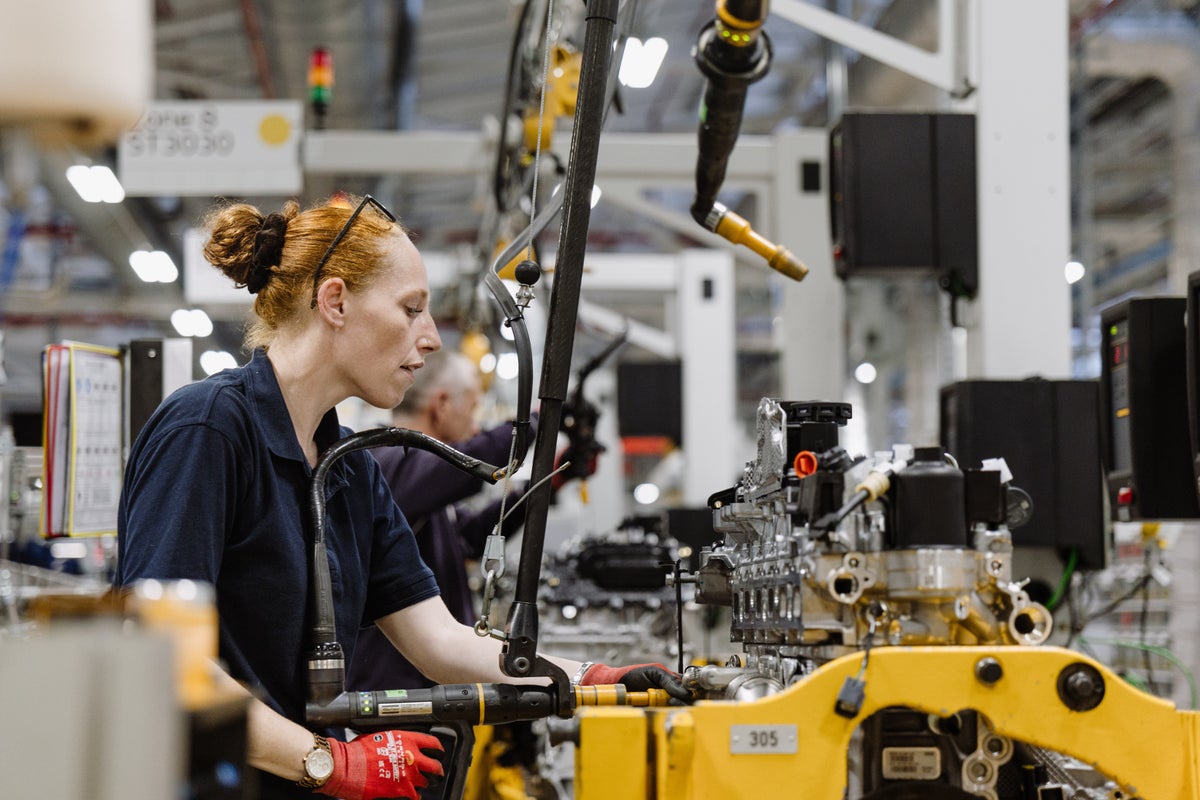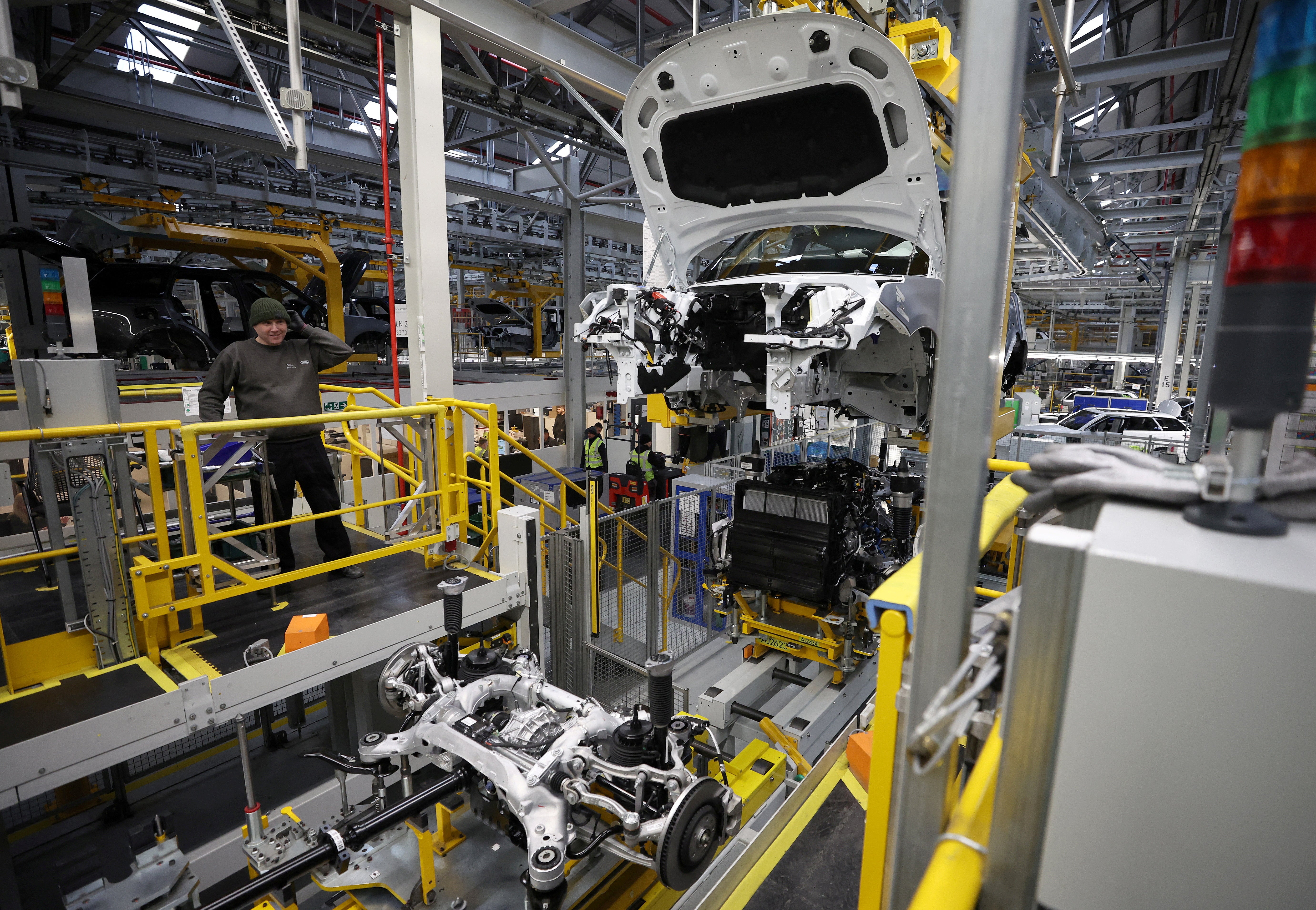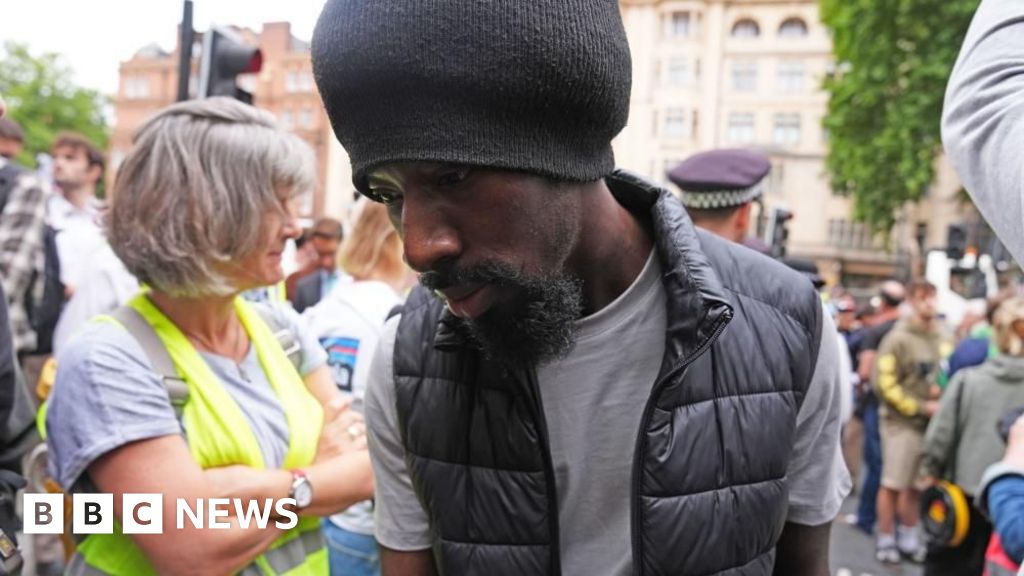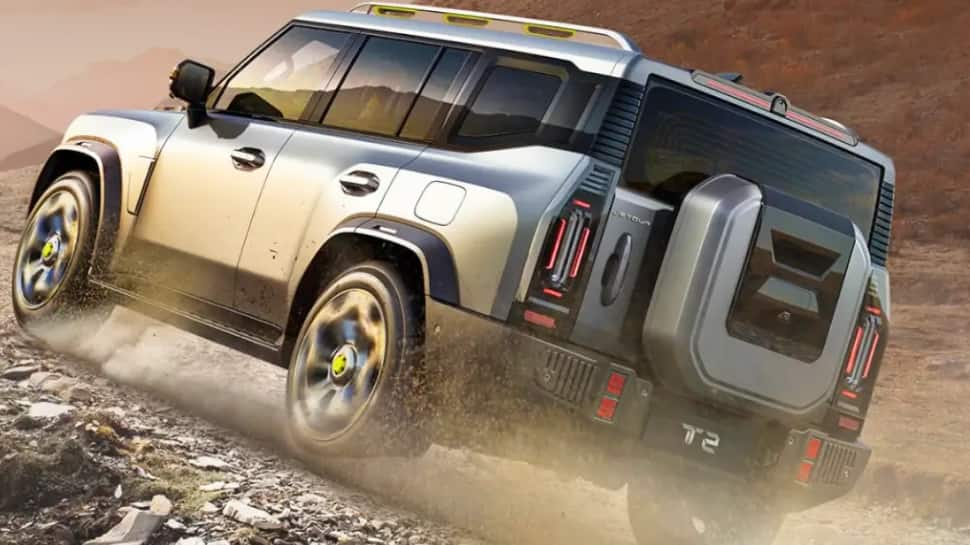Business
Carmaker resumes vehicle production following cyberattack

Jaguar Land Rover has begun restarting Range Rover production lines in Solihull, aiming for all its manufacturing sites to be fully operational by the end of next week, following a major cyber attack that halted operations.
Employees returned to the Solihull plant in the West Midlands on Thursday, after a phased production restart began on Wednesday. Operations had been suspended for more than a month following the significant hack.
The remaining Solihull lines, which produce the Range Rover Velar SUV and Jaguar F Pace models, are set to resume next Monday. Vehicle manufacturing at Halewood, Merseyside, will also restart then.
Overseas factories in Pune, India, and Brazil are scheduled to follow later next week, marking the final sites to recommence operations, the group confirmed.
JLR global manufacturing director Luis Vara said on Wednesday there was a “strong sense of unity and momentum” among production workers. Staff had been working from home since the firm’s systems were compromised on August 31.
The cyber attack occurred at a particularly crucial time for car firms, as September traditionally boosts demand for new vehicles with the release of the latest registration plates.
The incident also caused significant disruption to the firm’s global operations, with suppliers being left in limbo as production froze.
On Monday, JLR revealed a sharp drop in sales over recent months following the cyber incident, adding it had been a “challenging quarter” as it also grappled with the impact of higher US tariffs.
Sales fell by 17.1 per cent to 85,495 units between July and September, compared with the same period a year ago, with UK sales dropping by nearly a third.
The volume of wholesales tumbled by 24.2 per cent year on year to 66,165 units.
JLR said this partly reflected the production freeze since the start of September.
The group’s production restart began with its engine plant in Wolverhampton and its battery assembly centre in Coleshill, Birmingham, on Wednesday.
It also restarted stamping operations in Castle Bromwich, Halewood in Merseyside, and Solihull, on Wednesday, together with key areas of its Solihull vehicle production plant, such as its body shop, paint shop and its logistics operations centre.

This was followed by operations at its vehicle manufacturing facility in Nitra, Slovakia.
Mr Vara said on Wednesday: “There is a strong sense of unity and momentum as we get back to doing what we do best, building quality luxury vehicles for our customers.”
The firm has the largest supply chain in the UK automotive sector, which employs around 120,000 people and is largely made up of small and medium-sized businesses.
The Government recently announced it would underwrite a £1.5 billion loan guarantee to JLR to give suppliers some certainty over payments, helping bolster JLR’s cash reserves, but calls mounted for more to be done.
JLR said on Tuesday that its extended support package would see suppliers paid much faster than under the usual payment terms, by as much as 120 days early.
It will start with qualifying JLR suppliers seen as critical to the restart of production, then will be expanded to cover some non-production suppliers who have also been affected.
JLR also vowed to pay back financing costs for those JLR suppliers who use the scheme during the restart phase.
A raft of other businesses have been hit by major cyber attacks in recent months, including beer giant Asahi, high street retailer Marks & Spencer and nursery group Kido Schools.
Business
Govt keeps petrol, diesel prices unchanged for coming fortnight – SUCH TV

The government on Thursday kept petrol and high-speed diesel (HSD) prices unchanged at Rs253.17 per litre and Rs257.08 per litre respectively, for the coming fortnight, starting from January 16.
This decision was notified in a press release issued by the Petroleum Division.
Earlier, it was expected that the prices of all petroleum products would go down by up to Rs4.50 per litre (over 1pc each) today in view of variation in the international market.
Petrol is primarily used in private transport, small vehicles, rickshaws, and two-wheelers, and directly impacts the budgets of the middle and lower-middle classes.
Meanwhile, most of the transport sector runs on HSD. Its price is considered inflationary, as it is mostly used in heavy transport vehicles, trains, and agricultural engines such as trucks, buses, tractors, tube wells, and threshers, and particularly adds to the prices of vegetables and other eatables.
The government is currently charging about Rs100 per litre on petrol and about Rs97 per litre on diesel.
Business
Serial rail fare evader faces jail over 112 unpaid tickets

One of Britain’s most prolific rail fare dodgers could face jail after admitting dozens of travel offences.
Charles Brohiri, 29, pleaded guilty to travelling without buying a ticket a total of 112 times over a two-year period, Westminster Magistrates’ Court heard.
He could be ordered to pay more than £18,000 in unpaid fares and legal costs, the court was told.
He will be sentenced next month.
District Judge Nina Tempia warned Brohiri “could face a custodial sentence because of the number of offences he has committed”.
He pleaded guilty to 76 offences on Thursday.
It came after he was convicted in his absence of 36 charges at a previous hearing.
During Thursday’s hearing, Judge Tempia dismissed a bid by Brohiri’s lawyers to have the 36 convictions overturned.
They had argued the prosecutions were unlawful because they had not been brought by a qualified legal professional.
But Judge Tempia rejected the argument, saying there had been “no abuse of this court’s process”.
Business
JSW Likely To Launch Jetour T2 SUV In India This Year: Reports

JSW Jetour T2 Launch: JSW Motors Limited, the passenger vehicle arm of the JSW Group, is reportedly preparing to enter the Indian car market this year. It has partnered with Jetour, a China-based automotive brand owned by Chery Automobile, and the Jetour T2 SUV could be the company’s first product, according to the reports.
Media reports suggest that the launch will happen independently and not under the JSW MG Motor India joint venture. The SUV will wear a JSW badge and name, instead of the Jetour branding. The upcoming SUV will be assembled at JSW’s upcoming greenfield manufacturing facility in Chhatrapati Sambhaji Nagar, Maharashtra.
According to the reports, the company plans to have the vehicle on sale by the third quarter of this year. With this move, JSW aims to establish itself as a standalone carmaker in India.
Expected Powertrain
The SUV is likely to arrive with a 1.5-litre plug-in hybrid setup. Internationally, this hybrid powertrain is offered with both front-wheel drive and all-wheel drive options. It is still unclear which version will be introduced in India.
Design
In terms of design, the T2 is a large and rugged-looking SUV. It has a boxy and upright stance, similar to vehicles like the Land Rover Defender. Despite its tough appearance, it uses a monocoque chassis instead of a ladder-frame construction.
Size
The SUV measures around 4.7 metres in length and nearly 2 metres in width. This makes it larger than the Tata Safari, even though it is a five-seater. A longer 7-seat version is also sold in some markets.
Price
Pricing details for India are yet to be announced. For reference, the front-wheel-drive five-seat T2 i-DM is priced at AED 1,44,000 (around Rs 35 lakh) in the UAE.
Jetour
Jetour is a brand owned by Chinese automaker Chery. Launched in 2018, it focuses mainly on SUVs and is present in markets across China, the Middle East, Africa, Southeast Asia and Latin America.
-

 Politics1 week ago
Politics1 week agoUK says provided assistance in US-led tanker seizure
-

 Entertainment1 week ago
Entertainment1 week agoDoes new US food pyramid put too much steak on your plate?
-

 Entertainment1 week ago
Entertainment1 week agoWhy did Nick Reiner’s lawyer Alan Jackson withdraw from case?
-

 Business1 week ago
Business1 week agoTrump moves to ban home purchases by institutional investors
-

 Sports5 days ago
Sports5 days agoClock is ticking for Frank at Spurs, with dwindling evidence he deserves extra time
-

 Sports1 week ago
Sports1 week agoPGA of America CEO steps down after one year to take care of mother and mother-in-law
-

 Business1 week ago
Business1 week agoBulls dominate as KSE-100 breaks past 186,000 mark – SUCH TV
-
Sports6 days ago
Commanders go young, promote David Blough to be offensive coordinator






